Last updated on February 27th, 2020 at 01:55 am
Mediative recently published the results of their latest eye-tracking study where they zeroed in on how users interact with Google search results pages (SERPs) in an effort to identify real opportunities for SEO, PPC and branding especially as it relates to click-through rates. What they found is enlightening and corresponds to what I’m seeing with some of my clients.
Some of you remember the 2005 study known as the Golden Triangle heat map displaying how users interacted with Google SERPs, but people don’t interact with SERPs in the same way today.
Google has added more search elements that impact how users view and click:
- Knowledge Graph – answers to fact based searches
- Carousel – a strip of images at the top along with ratings
- Local Listings – grouped together from 2 to 7 listings
- Organic and sponsored listings – traditional Google search listings
Knowledge Graph SERPs
There are two types of Knowledge Graph SERPs to consider:
- Those that are relevant to the search query
- Those that are irrelevant to the search query
People tend to spend more time looking at the Knowledge Graph when it is relevant to their search.
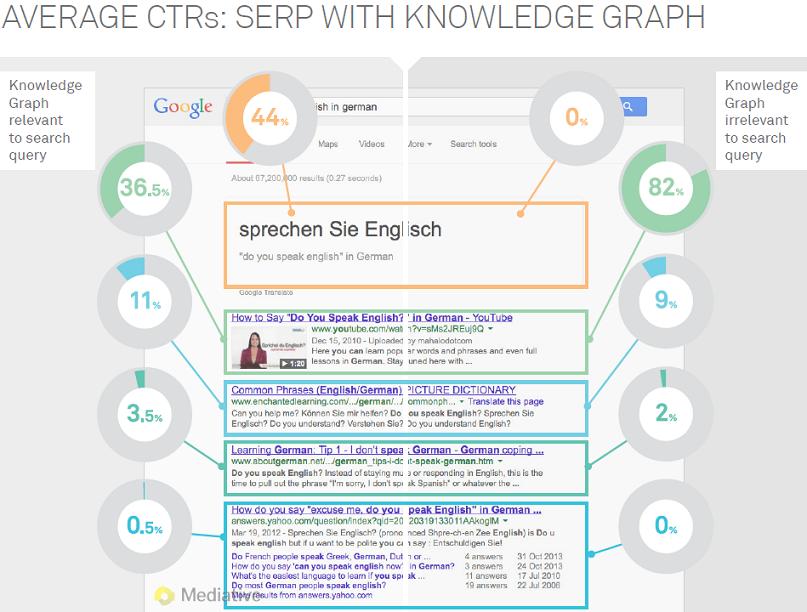
Carousel SERPs
The Carousel did not seem to hold the attention of the searcher and as a result the top sponsored listing got more attention and clicks than on a SERP that did not have the Carousel.
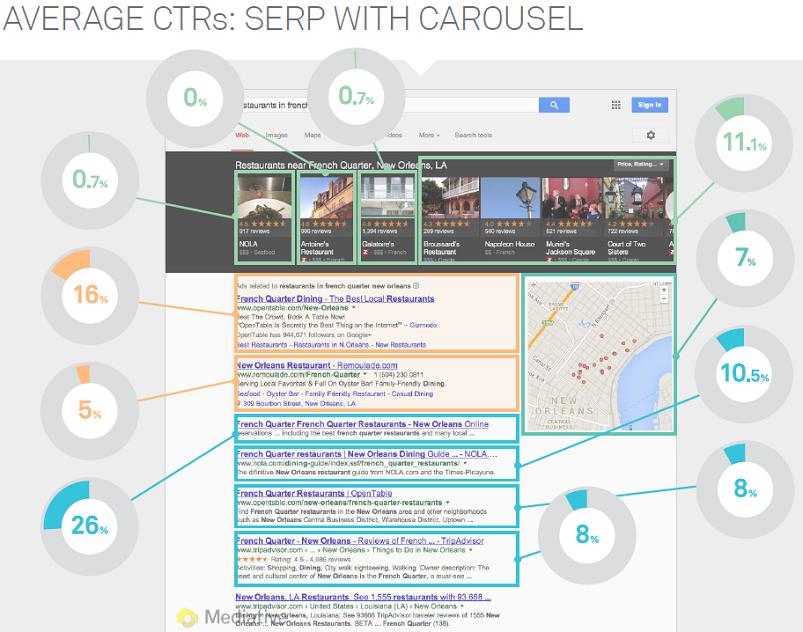
Local Listings SERPs
Local listings are influenced by an optimized Google+ Local or Google My Business profile.
There are two types of Local Listings SERPs to consider:
- Those positioned below organic search results
- Those positioned above organic search results
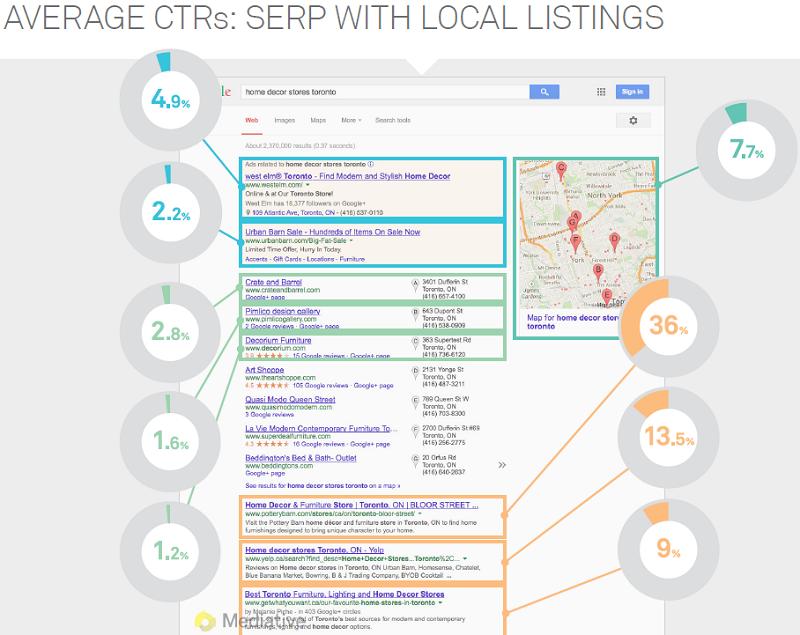
Organic and Sponsored Listings SERPs
“Over half of the page clicks were won by areas of the SERP above the 4th Organic Listing.”
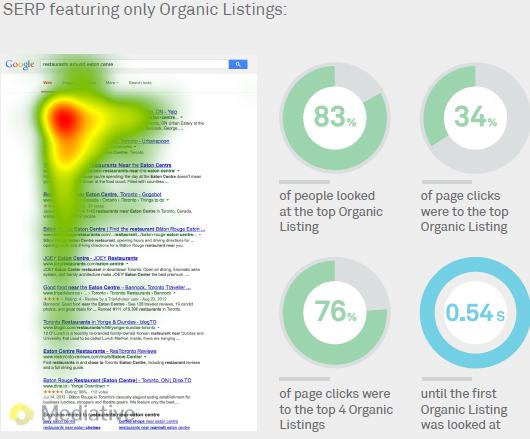
Sponsored Listings
Top sponsored ads continue to capture attention and clicks.
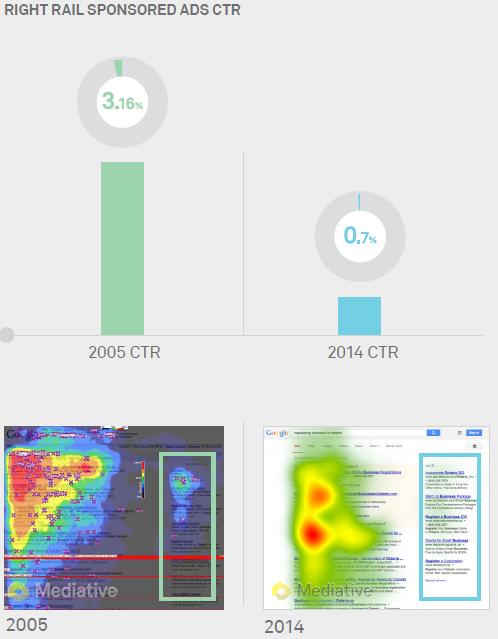
A few observations:
- PPC or sponsored listings have continued to gain visibility and clicks regardless of the different SERPs and therefore can be a worthy investment when there is fierce competition for the top organic spot.
- Utilizing schema markup to enhance your organic search listings can bring more traffic to your site.
- Optimizing your Google+ Local or Google My Business page can improve your visibility in the Local Listings
- Organic positions 1-4 bring valuable traffic, below these positions the traffic is not dependable
- Avoid the right rail, if possible, with your Adwords campaign
- Knowing your ideal prospect well is critical
Get the full report: The Evolution of Google Search Results Pages & Their Effects On User Behavior
6 replies to "Traffic From Google SERPs Has Changed: Heat Maps Study"
Very interesting data, Tom.
It’s incredibile how the first result gets so many attention,
and the following ones receive less attention shifting down to the bottom.
In any case it is always the first page!
Thanks for sharing.
Have a great rest of this week.
Hi Erik,
Yep these maps reveal great opportunities for both SEO and PPC.
“The Carousel did not seem to hold the attention of the searcher”
I have a theory that searchers may actually want to see just a list of search results 🙂
haha, yep the Carousel still seems to be totally unexpected
hi Tom.. This information have a great break for SEO..
and I always notice that the responsiveness of the researcher is always in the first page, and they don’t mind the next page. Why?
Hi Marivic, most people don’t look at the second page on Google because they are either on a mobile device or the perception is that the results get less relevant the further down you go. That’s not often true but it seems to be the perception of Google users today.